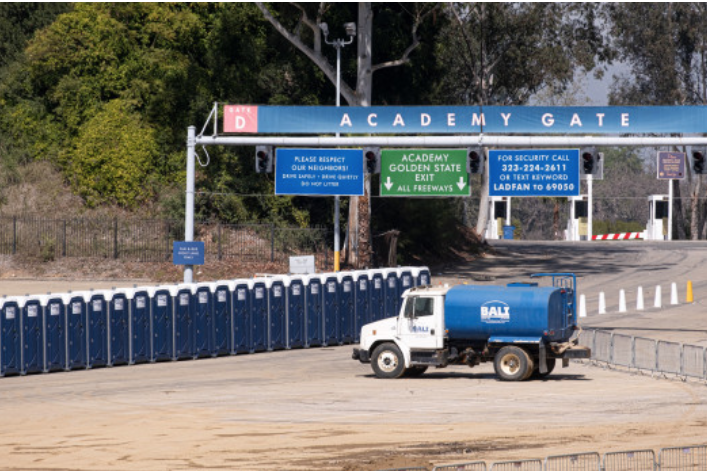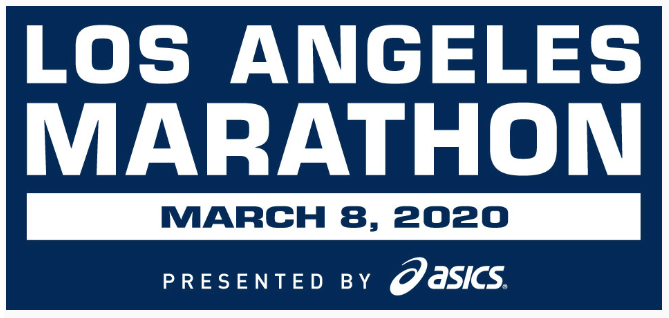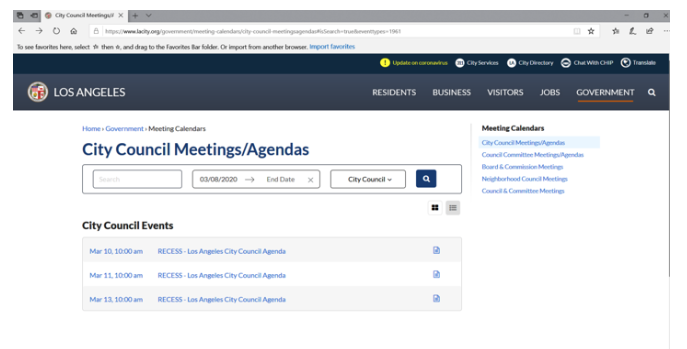CommentsPUBLIC HEALTH-Coronavirus Disease 2019 (COVID-19) Situation Summary: I can’t begin to tell you how many news broadcasts I have watched or how many articles I have read related to the Coronavirus aka: COVID-19.
I receive the automatic emails from the CDC, the Los Angeles County Department of Public Health (LAHAN), and other health agencies. Their messages are inconsistent as has been discussed in the televised news media.
Our Governor, Gavin Newsom declared a State of Emergency:
“The State of California is deploying every level of government to help identify cases and slow the spread of this coronavirus,” said Governor Newsom. “This emergency proclamation will help the state further prepare our communities and our health care system in the event it spreads more broadly.”
Governor Newsom’s press release sends you to the California Department of Public Health (CDPH) website: “Coronavirus Disease 2019 (COVID-19):
This is from the CDPH website:
“The California Department of Public Health (the Public Health Department) understands there are concerns about novel coronavirus, and understandably so. Although coronaviruses are a group of viruses that aren’t new, this is a new type of coronavirus and we are still learning about it. However, the health risk to the general public in California remains low. While COVID-19 has a high transmission rate, it has a low mortality rate. From the international data we have, of those who have tested positive for COVID-19, approximately 80 percent do not exhibit symptoms that would require hospitalization. California is carefully assessing the situation as it evolves.”
“What can the public do to limit the spread of COVID-19?
The California Department of Public Health recommends the following steps to prevent the spread of all respiratory viruses:
- Washing hands with soap and water.
- Avoiding touching eyes, nose or mouth with unwashed hands.
- Cover your cough or sneeze with a tissue or your elbow.
- Avoiding close contact with people who are sick are all ways to reduce the risk of infection with a number of different viruses.
- Staying away from work, school or other people if you become sick with respiratory symptoms like fever and cough.”
This message from CDPH would lead you to believe that you can go about your everyday life with the same concerns precautions that you would take to prevent seasonal flu or other contagious diseases.
“Should public events be cancelled?
The California Department of Public Health is not recommending the cancellation of public events. The health risk from COVID-19 to the general public remains low at this time.
California state and local health officials are actively working to help protect the health of Californians. California has a limited number of confirmed cases of COVID-19 and we don't have indication of it spreading widely in our communities at this time.
The U.S. government has taken unprecedented steps to protect against the spread of COVID-19. On January 31, entry into the United States was suspended for foreign nationals who have been in mainland China within the previous 14 days. U.S. citizens, residents, and their immediate family members who have been in Hubei province and other parts of mainland China are allowed to enter the United States, but they will be screened, and depending on their assessed risk level, will be subject to health monitoring and possible quarantine for up to 14 days. After the 14 day period with no symptoms, these travelers would no longer be considered a risk to others. These measures are expected to minimize the risk of exposure to COVID-19 associated with travelers who have been invited to attend conferences or public meetings in California.”
Is this the correct message to be sending in California?
Then there is the message of Los Angeles Mayor Eric Garcetti:
“Mayor Garcetti Strengthens Readiness Against Coronavirus by Declaring Local Emergency”:
“The step we’re taking today is about preparation, not panic,” said Mayor Eric Garcetti. “There is extraordinary work being done alongside our partners in county and federal government to keep Angelenos safe, aware, and informed. This declaration is about making sure we are positioned to respond to any changes in the situation and are doing everything we can to protect our communities.”
“Despite coronavirus, why are the LA Marathon and Coachella still on?”
“L.A. County health officials recommended that spectators who are sick stay home and that anyone who attends stay six feet away from others. Runners were advised to wash their hands before the race and to not shake hands with other participants or the public. Hand sanitizer will also be available for runners along the course.
“We are not currently recommending the suspension of any large public events, including the L.A. Marathon,” Barbara Ferrer, director of the county Public Health Department, said in a statement Thursday. “The public can continue to enjoy all that L.A. County has to offer, including this historic event.”
Officials have said they don’t see enough of a public health threat to cancel the marathon.
“This is a big popular event, but I remain concerned & don’t think it’s worth the risk,” wrote Councilman Tom Bonin on Twitter.” Thank you, Councilmember Bonin for actually thinking about what is about to happen here!
Let’s think about that scenario for a minute. . .

“Portable restrooms and tents are now in place at Dodger Stadium for the start of the Los Angeles Marathon Sunday. Organizers say the event will go on as planned, despite concerns about the spread of coronavirus. (Photo by David Crane, Los Angeles Daily News/SCNG)
By CITY NEWS SERVICE | [email protected] and DAVID ROSENFELD | [email protected] |
PUBLISHED: March 5, 2020 at 5:00 p.m. | UPDATED: March 6, 2020 at 1:15 p.m.”
As the mass of runners runs this race, are bystanders really going to stand 6 feet apart? Who is going to use the portable toilets along the routes? Aren’t the homeless going to use the same toilets as the runners and the spectators?
“For homeless, coronavirus guidelines can be ‘impossible’”:
“With little access to hand-washing stations, shelter, sanitary restrooms and medical care, Los Angeles County’s homeless population may be hit especially hard during a novel coronavirus outbreak, public health officials said this week.
“Many of the strategies that we ask people to take — for people who are unsheltered, are actually impossible,” Dr. Barbara Ferrer, director of the Los Angeles County Public Health Department, told the LA County Board of Supervisors.”
“They cannot stay home when they’re sick,” she said. “They cannot wash their hands, (or) often infrequently. And a lot of the times they do not have a medical provider that they are in contact with.”
She added that many people who are homeless tend to be “sicker than the general public and already have heightened mortality rates.”
“So we are very concerned that a novel coronavirus can disproportionately devastate people who are experiencing homelessness,” she said.
THE PERFECT STORM
What happens if our homeless community gets the Coronavirus? To date, we have not seen a lot of cases of Coronavirus in Los Angeles County. But people who run in the Los Angeles Marathon come from all over the World.

Image Courtesy of Los Angeles Marathon website:
“Over 27,000 athletes from all 50 states and more than 78 countries will set out from Dodger Stadium to accomplish a personal dream by reaching the Finish Line in Santa Monica.”
Isn’t the County of Los Angeles and the City of Los Angeles just risking “The Perfect Storm” by having an event downtown when we not only have the homeless crisis, but we already have a homeless crisis that is a risk not only to the homeless themselves, but to everyone in our community that is impacted by the sanitary problems created by this crisis?
Does this tell us – allowing the Marathon to go on during the Coronavirus – what we will face when the 2028 Olympics are planned for Los Angeles? That not even the threat of a potentially lethal disease will stop the 2028 Olympics in Los Angeles?
“Coronavirus: Tokyo 2020 could be postponed to end of year - Japan's Olympic minister”:

Seiko Hashimoto says Tokyo 2020 organizers are "doing all we can" to make sure the Games go ahead as planned – Photo courtesy of Getty images
“Japan's Olympic minister says the Tokyo 2020 Games could be postponed from the summer until later in the year amid fears over the coronavirus outbreak.
In a response to a question in Japan's parliament, Seiko Hashimoto said Tokyo's contract with the International Olympic Committee (IOC) "calls for the Games to be held within 2020".
She added that "could be interpreted as allowing a postponement."
Does Japan take this virus more seriously than we do here in California?
THE LACK OF A CONSISTENT MESSAGE
The CDPH basically says go about your everyday life. The LA County Department of Health by allowing the LA Marathon and large concerts where people travel from all over the World to participate, to perform, or to attend sends a message not unlike the one from the Federal government.
“Trump downplays risk, places Pence in charge of coronavirus outbreak response”:
“The administration has received criticism for lacking a coherent message about the virus as its reach and intensity have spread.
Azar faced tough questions from lawmakers Wednesday during hearings on Capitol Hill.
“While the immediate risks to the American public remain low, there is now community transmission in a number of places, including outside of Asia, which is deeply concerning,” Azar said. “We are working closely with state and local and private-sector partners to prepare for mitigating the virus’s potential spread in the United States as we expect to see more cases here.”

-
The Los Angeles City Council has cancelled all of their meetings this week except for a few committee meetings on Monday morning.
-
Yet various City Commission meetings are still being held, and Neighborhood Council meetings are still being held – why?
-
Is the risk of this illness not enough to tell the Commissioners, Alliances, and Neighborhood Council Presidents to cancel their planned Board events until further notice?
MY THOUGHTS: LISTEN TO THE CDC
Coronavirus Disease 2019 (COVID-19)
People at Risk for Serious Illness from COVID-19:
“If you are at higher risk of getting very sick from COVID-19, you should:
-
Stock up on supplies.
-
Take everyday precautions to keep space between yourself and others.
-
When you go out in public, keep away from others who are sick, limit close contact and wash your hands often.
-
Avoid crowds as much as possible.
During a COVID-19 outbreak an outbreak in your community, stay home as much as possible.
Older adults and people who have severe chronic medical conditions like heart, lung or kidney disease seem to be at higher risk for more serious COVID-19 illness. Early data suggest older people are twice as likely to have serious COVID-19 illness. This may be because:
-
As people age, their immune systems change, making it harder for their body to fight off diseases and infection.
-
Many older adults are also more likely to have underlying health conditions that make it harder to cope with and recover from illness.
If a COVID-19 outbreak happens in your community, it could last for a long time. Depending on the severity of the outbreak, public health officials may recommend community actions to reduce exposures to COVID-19. These actions can slow the spread and reduce the impact of disease.
If you are at increased risk for COVID-19 complications due to age or because you have a severe underlying medical condition, it is especially important for you to take actions to reduce your risk of exposure.”
“Get Ready for COVID-19 Now
-
Have supplies on hand
-
Contact your healthcare provider to ask about obtaining extra necessary medications to have on hand in case there is an outbreak of COVID-19 in your community and you need to stay home for a prolonged period of time.
-
If you cannot get extra medications, consider using mail-order for medications.
-
Be sure you have over-the-counter medicines and medical supplies (tissues, etc.) to treat fever and other symptoms. Most people will be able to recover from COVID-19 at home.
-
Have enough household items and groceries on hand so that you will be prepared to stay at home for a period of time.
-
Take everyday precautions
Avoid close contact with people who are sick.
-
Take everyday preventive actions
-
Clean your hands often
-
Wash your hands often with soap and water for at least 20 seconds, especially after blowing your nose, coughing, or sneezing, or having been in a public place.
-
If soap and water are not available, use a hand sanitizer that contains at least 60% alcohol.
-
To the extent possible, avoid touching high-touch surfaces in public places – elevator buttons, door handles, handrails, handshaking with people, etc. Use a tissue or your sleeve to cover your hand or finger if you must touch something.
-
Wash your hands after touching surfaces in public places.
-
Avoid touching your face, nose, eyes, etc.
-
Clean and disinfect your home to remove germs: practice routine cleaning of frequently touched surfaces (for example: tables, doorknobs, light switches, handles, desks, toilets, faucets, sinks & cell phones)
-
Avoid crowds, especially in poorly ventilated spaces. Your risk of exposure to respiratory viruses like COVID-19 may increase in crowded, closed-in settings with little air circulation if there are people in the crowd who are sick.
-
If COVID-19 is spreading in your community, take extra measures to put distance. between yourself and other people.
-
Stay home as much as possible.
-
Consider ways of getting food brought to your house through family, social, or commercial networks.
Have a plan for if you get sick:
-
Consult with your health care provider for more information about monitoring your health for symptoms suggestive of COVID-19.
-
Stay in touch with others by phone or email. You may need to ask for help from friends, family, neighbors, community health workers, etc. if you become sick.
-
Determine who can provide you with care if your caregiver gets sick
Watch for symptoms and emergency warning signs:
-
Pay attention for potential COVID-19 symptoms including fever, cough, and shortness of breath. If you feel like you are developing symptoms, call your doctor.
-
If you develop emergency warning signs for COVID-19 get medical attention immediately. In adults, emergency warning signs*:
-
Difficulty breathing or shortness of breath
-
Persistent pain or pressure in the chest
-
New confusion or inability to arouse
-
Bluish lips or face
-
*This list is not all inclusive. Please consult your medical provider for any other symptom that is severe or concerning.”
My Conclusion:
Who are the Commissioners? How many of them are Senior Citizens?
Who are the Neighborhood Councilmembers? How many of them are Senior Citizens or are people with compromised immune systems?
Shouldn’t our City Elected Officials be recommending that these meetings be cancelled as the City Council meetings have been until we have more test kits for the Coronavirus and more facilities for the Homeless to protect everyone from “A Perfect Storm”?
(Chris Rowe has been a 41-year resident of West Hills, was a former West Hills Neighborhood Council Board Member, and has a B.S. in health education. She can be reached at [email protected].) Edited for CityWatch by Linda Abrams.















